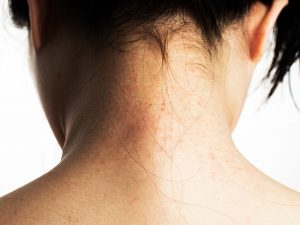Mental disorders can be complex, difficult to diagnose and confused with other mental health issues. Schizophrenia is a chronic brain disorder that can be mistaken for split or multiple personality disorder. This condition is incurable but it is treatable. If you suspect you or someone you know is displaying signs of schizophrenia, talk to a mental health professional right away for a proper diagnosis. Some mental health illnesses can lead to homelessness or hospitalization due to out-of- control or violent behavior but people diagnosed with this disorder are able to live with their families, in group homes, or even on their own. Schizophrenia affects more than 21 million people worldwide, according to the World Health Organization (WHO), and is equally affects both men and women and all ethnic groups.
So What is Schizophrenia?
There is no single schizophrenia test or physical examination to diagnose this disorder. In some cases, drugs such as LSD or methamphetamine can bring on schizophrenia-like symptoms.
Signs of Schizophrenia
Diagnosing schizophrenia can be complex because many people who have the illness don’t believe they have it and lack awareness of the symptoms. The WHO reports that one in two people living with schizophrenia are not receiving care for their condition. For a diagnosis of the illness a person must have had two or more schizophrenic symptoms for at least six months, reducing function. Talk to a mental health professional if you think you or a loved one has experienced two or more symptoms associated with this illness. Do not attempt to self-diagnose.
Schizophrenia Symptoms
• Hallucinations: May include hearing voices, seeing things or smelling things. This can be a very confusing experience for surrounding people, as these hallucinations are extremely real to the schizophrenic person. Voices heard by the person hallucinating can sometimes include a threat or criticism.
• Delusions: Schizophrenics can develop ideas or beliefs that are not based on fact. Delusions can be combined with trouble concentrating, confused thinking or a feeling of blocked thoughts.
• Negative Symptoms: Negative symptoms manifest in people being emotionally flat or speaking in a disconnected manner. Those with negative symptoms are often unable to start or follow through with activities, have little interest in life or are unable to maintain relationships. Some cases of negative symptoms are confused with clinical depression.
• Cognitive Issues/ Disorganized Thinking: Also known as anosognosia or “lack of insight”. People can be unaware they have schizophrenia and this symptom can make treatment a challenge. In addition to cognitive impairment, people can have difficulty remembering things, or organizing thoughts and tasks.
Schizophrenia can develop at any age but occurs mostly from the late teens to early 20s for men and the late 20s to early 30s for women. Diagnosis can be difficult in the teen years as it can manifest in behaviors associated with adolescents, such as a change in friends, drops in grades, sleep problems and irritability.
Types of Schizophrenia
While schizophrenia has a few common symptoms, different categories of the illness have their own behaviors.
• Paranoid Schizophrenia: This is the most common category of schizophrenia. Behaviors associated with this illness include irrational thoughts, experiencing scary thoughts and in some cases attacking people or objects due to paranoia. Paranoid schizophrenia tends to develop later in life than other categories of schizophrenia.
• Catatonic Schizophrenia: This category of schizophrenia is rare. Behaviors of catatonic schizophrenia include sitting or standing in odd positions (posturing), sitting without moving for long periods of time (stupor), intense periods of activity in which people may injure themselves or others (catatonic excitement) and moving arms and legs in odd positions (wavy flexibility).
• Disorganized Schizophrenia: Also known as hebephrenic schizophrenia, this is another rare form of the disease but is the most serious due to unpredictable behavior. Symptoms of hebephrenic schizophrenia include nonsensical words or sentences (neologisms), echoing other people (echolalia), or rhyming words (clanging speech). Behaviors include dressing oddly (hats and coats in summer), performing private actions in public (urinating) or repeating the actions of others (echopraxia).
• Undifferentiated Schizophrenia: This term is used for people who have schizophrenia but without the symptoms that fit into the other categories of the illness.
• Residual Schizophrenia: Schizophrenia cannot be cured, but people can manage and treat their symptoms and enter remission. Doctors use the term “residual remission” when symptoms still occur during the remission phase. Schizophrenia Causes
Scientists have discovered several possible causes, including:
• Genetics: A complex relationship between genetics and environment. A family history of the condition greatly increases the risk of disease, with about 10 per cent of people with a diagnosed first-degree relative developing the disorder. The highest genetic risk factor for schizophrenia is the presence of a diagnosed twin, pushing the risk up to 50 per cent.
• Environment: Virus exposure and malnutrition before the first and second trimesters has been shown to increase the risk of schizophrenia.
• Brain Chemistry: Complications with brain chemicals, particularly neurotransmitters such as dopamine and glutamate, have been shown to raise the risk of schizophrenia. Neurotransmitters allow brain cells to communicate.
• Substance Use: Some scientists suggest the use of mind-altering drugs during the teens and young-adult years can increase the likelihood of schizophrenia. Schizophrenia Treatment With proper treatment and support many people with schizophrenia live productive and normal lives. Each case is unique and so is treatment. Talk to your doctor about which treatment therapy is right for you.
• Antipsychotics: These are typically daily medications given in pill or liquid form and sometimes as monthly injections. Your doctor will work with you to find the dose and form that is right for you.
• Psychosocial Treatments: These are coping mechanisms for people to use in everyday life and people who combine psychological treatment with their medication program are less likely to relapse.
• Coordinated Specialty Care (CSC): CSC is a combined treatment plan of medication, therapy, case management, family support and education. The aim is to improve overall quality of life in all areas. Talk to your doctor about CSC options in your area if you are interested in more integrated care.











